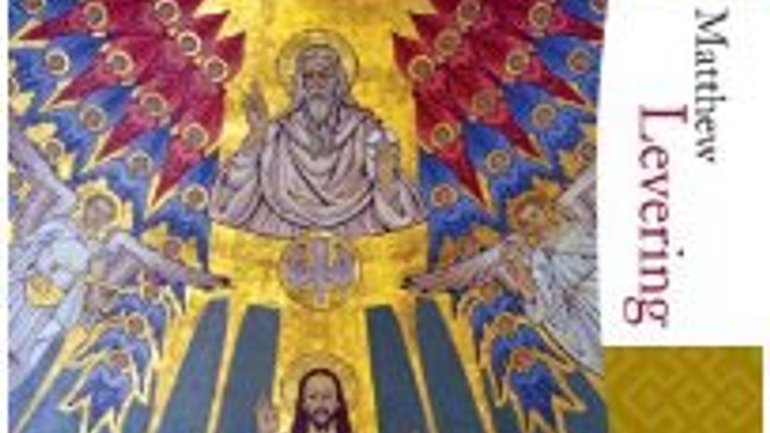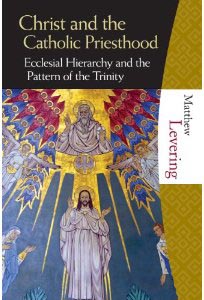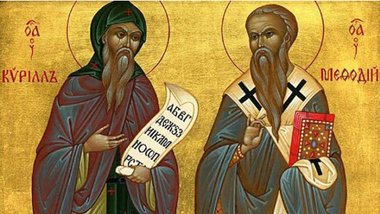Ecclesial Hierarchy

This is a marvelous book, flawlessly written with great cogency and unfailing respect even for those positions and people with which Levering disagrees. He sets out to see if it is possible, in this day and age, to come up with a convincing theological rationale for the existence of hierarchy in the Church--an acute question in the last several decades, but perhaps never so acute as in the last year or so when both Catholic and Orthodox bishops--not excluding the bishop of Rome--as well as priests and others, have been accused of, e.g. and inter alia, themselves committing horrifying crimes against children or covering up such crimes by other clergy.
 Matthew Levering has written a book that, in some respects, I wish I had written--that, indeed, more than ten years ago now, I did think I might some day write. It is a fascinating study that treats of Triadology, Christology, ecclesiology, ecumenism, and the sacraments:
Matthew Levering has written a book that, in some respects, I wish I had written--that, indeed, more than ten years ago now, I did think I might some day write. It is a fascinating study that treats of Triadology, Christology, ecclesiology, ecumenism, and the sacraments:
Matthew Levering, Christ and the the Catholic Priesthood: Ecclesial Hierarchy and the Pattern of the Trinity (Chicago: Hillenbrand Books, 2010), x+339pp.
This is a marvelous book, flawlessly written with great cogency and unfailing respect even for those positions and people with which Levering disagrees. He sets out to see if it is possible, in this day and age, to come up with a convincing theological rationale for the existence of hierarchy in the Church--an acute question in the last several decades, but perhaps never so acute as in the last year or so when both Catholic and Orthodox bishops--not excluding the bishop of Rome--as well as priests and others, have been accused of, e.g. and inter alia, themselves committing horrifying crimes against children or covering up such crimes by other clergy. Who has not been tempted at least once to quote to such bishops Cromwell's famous speech to the Long Parliament:
It is high time for me to put an end to your sitting in this place, which you have dishonored by your contempt of all virtue, and defiled by your practice of every vice; ye are a factious crew, and enemies to all good government; ye are a pack of mercenary wretches, and would like Esau sell your country for a mess of pottage, and like Judas betray your God for a few pieces of money... . Ye have no more religion than my horse....
Ye sordid prostitutes have you not defil’d this sacred place, and turn’d the Lord’s temple into a den of thieves, by your immoral principles and wicked practices? Ye are grown intolerably odious.... So! Take away that shining bauble there, and lock up the doors. In the name of God, go!
Levering is not even remotely so polemical or dismissive. In five meaty chapters, with a substantial introduction and a brief conclusion, he sees his burden precisely as rescuing a plausible understanding of hierarchy from the (in many cases justly deserved, as he himself recognizes repeatedly) opprobrium to which it is so often subject today in Church and world alike. Levering clearly writes as a vir ecclesiasticus but his is not merely a defensive exercise in "apologetics" (that unjustly derided activity) for some kind of ham-fisted hierarchy offering us only the ability to "exult in the freedom to submit to authority with wild abandon" (Richard John Neuhaus's splendid phrase). No obsequious W.G. Ward he--demanding a papal bull at breakfast every morning with his Times. This is instead theology of a very high order, focused not on human hierarchs but on Christ, and done exactly as it should be: with great ecumenical openness and generosity of spirit to other traditions to see what can be learned from them--without, at the same time, watering down his own Roman Catholic tradition. This book is a model of how to engage others respectfully and profitably without selling one's own tradition down the river.
A very great deal of Levering's book, in fact, is a dialogue with the Greek Orthodox theologian John Zizioulas--and, beyond him, Nicholas Afanasiev, Paul Evdokimov, Alexander Schmemann, and others. Non-Orthodox who feature prominently here include Joseph Ratzinger and Myroslav Volf. Linking them all--and correcting them when necessary, at least as far as Levering sees it--is Thomas Aquinas.
I am not a Thomist and have little interest in him, so I shall leave it to others to determine whether Levering has rendered Thomas rightly. That said, the Thomas who appears so often in this book poses, to my mind, really no problem to the East in almost every instance and, surprisingly, would seem to agree with common Eastern positions on, e.g., the relationship between Peter and the other Apostles as an analogy for the relationship between one primate and many bishops. (Sometimes I think Levering's use of Thomas in this book is rather forced as with the end of ch. 3, pp.164ff., where the reason Thomas is brought into dialogue with Zizioulas is not clear; Levering's rationale for the inclusion ["Aquinas's scriptural and metaphysical depth serves our inquiry at this stage," 164] is overly laconic and unconvincing.) I fear, however, that even the very mention of the so-called angelic doctor will be enough to ensure that Eastern Christian readers do not learn from this rich and profitable book. For too many Eastern Christians the mere mention of such phrases as "scholasticism," "Aquinas" (etc.) is enough for them either to dismiss a work tout court or else descend into fits of apoplexy about matters on which they have an "encyclopedic ignorance" and "deranged terror" (in David Bentley Hart's memorably apt phrases). It would be a great loss to fail to read this book because of that. For there is, in my estimation, nothing in this book that would not, mutatis mutandis, also be enormously relevant and accessible to Orthodox Christians wondering--as many, in, e.g., the OCA cannot have failed to do over the last decade or more of scandals--about why God has burdened the Church with bishops, especially bishops who fiddle the books or diddle the altar boys.
Levering does not suffer that temptation. His answer to the question--Why hierarchy?--is refreshingly theological. By that I mean that he has avoided the very frequent trap, which I have elsewhere lamented, of the majority of ecclesiologists today (of all traditions) who treat the Church purely sociologically; God plays no real role. Not for Levering. This book begins and ends with God and the recognition that the Church is His; it is not a plaything of our own devising. Bishops, whose capacity for iniquity the author does not romantically deny or cynically overplay, are given to us precisely so that we can, through their sacramental ministrations, be given access to Christ.
Chapter 1, "Hierarchical Priesthood and Trinitarian Communion" sets the scene for the rest of the book. Here Levering first reviews the Trinitarian theology of Ratzinger and Zizioulas before turning to Volf. In responding to all three with Thomas, Levering, surprisingly, glides over (pp. 46-47; cf. p.196, fn. 33) the controverted issue of the filioque. The question he puts to all four is: "does not hierarchy mean that some Christians give more and others receive more? If this is so, how can a hierarchical Church be a true image of either the divine unity or the communion of the divine Trinity" (53)? He spends the rest of the book surveying responses to this and related questions--e.g., how are we to understand Christ as high priest, and what is the significance of that for the sacramental priesthood in the Church today?--and then coming up with his own very carefully considered reply.
A few critical comments: While this is a richly referenced work, and for once a publisher has had the very good sense--which all other publishers of academic books should be required to follow--of using footnotes and not the wholly vexatious endnotes, Levering's footnotes are sometimes rather lavish and occasionally ostentatious; but sometimes they are surprising by what is not there when one would have expected--given the author's impressively wide reading--certain sources most certainly to make an appearance. E.g., Levering relies almost exclusively on Afanasiev's essay "The Church Which Presides in Love" from 1963, even though he is aware (cf. p. 189, fn.12) that the fuller work by Afanasiev, The Church of the Holy Spirit, has been in print since 2007. I think this book should have been consulted more because it contains a great deal of material not only relevant to Levering's argument, but also capable of introducing significant nuance and subtle shifts in Afanasiev's ecclesiology.
A few other sources one would have expected to see here are also missing. Inter alia, I was surprised that Francis Dvornik
's important historical works
are nowhere cited. I was even more surprised that Levering's attention to Pseudo-Dionysius (pp.251-272) overlooks an increasingly
burgeoning
literature
on him
just in the last five years. I also think Levering's treatment of Ps-Dionysius is sometimes too sanguine and overlooks dangers the Orthodox theologian John Jillions has articulated well. Levering's treatment of Schmemann is really an afterthought in some ways, and he overlooks S's important insight that the one great unresolved problem, the one glaring lacuna in all ecclesiology, ancient and modern, East and West, is the problem of the parish.
In the end, however, I think Levering has made a very convincing case and shown himself a model Thomist, at least methodologically: he has taken his opponents' arguments very seriously, stated them at length with clarity and respect, and then shown how and where they are weak, flawed, or wrong. All this he has done in order to demonstrate that in the Church "hierarchical order imitates God in the Trinitarian action ad extra" (269), and such hierarchy can only be "understood eucharistically" as exercising a "participated power" (276) that "enables believers to enter into the pattern of the triune God's outpouring of love" (272).
Levering is to be congratulated for this excellent book, at once faithful and ecumenical, and wholly relevant to Catholic and Orthodox Christians alike today. I warmly recommend it to all Christians, Eastern and Western, who may recently have grown rather weary--and for good reason--with their shepherds' sins and shenanigans. In the end, thankfully, it is not about them--or us: it is about the Triune God, whom all of us are to glorify unto ages of ages.
Dr. Adam DeVille









